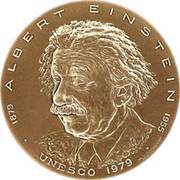Seeking nominations for international science communicators award
The New Zealand National Commission for UNESCO is currently seeking nominations for the prestigious UNESCO Kalinga Prize for the Popularization of Science.
Details
This international distinction awards outstanding contributions of individuals in communicating science to society and promoting the popularisation of science.
UNESCO writes: ‘By bridging the gap between science and society the benefits of scientific knowledge can be used to improve daily lives, empower people and find solutions to global, regional and local challenges. In order to strengthen communication between science and society it is important that efforts made in bridging the gap do not go unnoticed.'
Popularising science needs to be championed, including all activities that communicate scientific knowledge and scientific methods to the public outside the formal classroom setting and promote public understanding of the history of science.’
Previous winners have been writers, editors, lecturers, radio/television/web programme directors or film producers. Many have been scientists in their own right, while others have been trained in journalism or have been educators or writers. Some have also been Nobel Prize winners. Previous laureates include Sir Julian Huxley, Margaret Mead and Sir David Attenborough.
The successful candidate is expected to have knowledge of the role of science, technology and general research for the improvement of public welfare, the enrichment of the cultural heritage of nations and the solutions of the problems of humanity.
The award consists of a cheque for the amount of the prize US$40,000, an award certificate, and the UNESCO-Albert Einstein silver medal.
The laureate will also receive the Kalinga Chair as established by the Government of India (Department of Science and Technology) which comprises a certificate and cash award of US$5,000. The winner will be invited to travel to India (travel and accommodation will be provided by the Government of India), for a two to four week tour to interact with scientists and science communicators.
Only one candidate may be nominated by each country, so all New Zealand recommendations must come through the National Commission one month prior to the UNESCO deadline of 31 May 2019.

